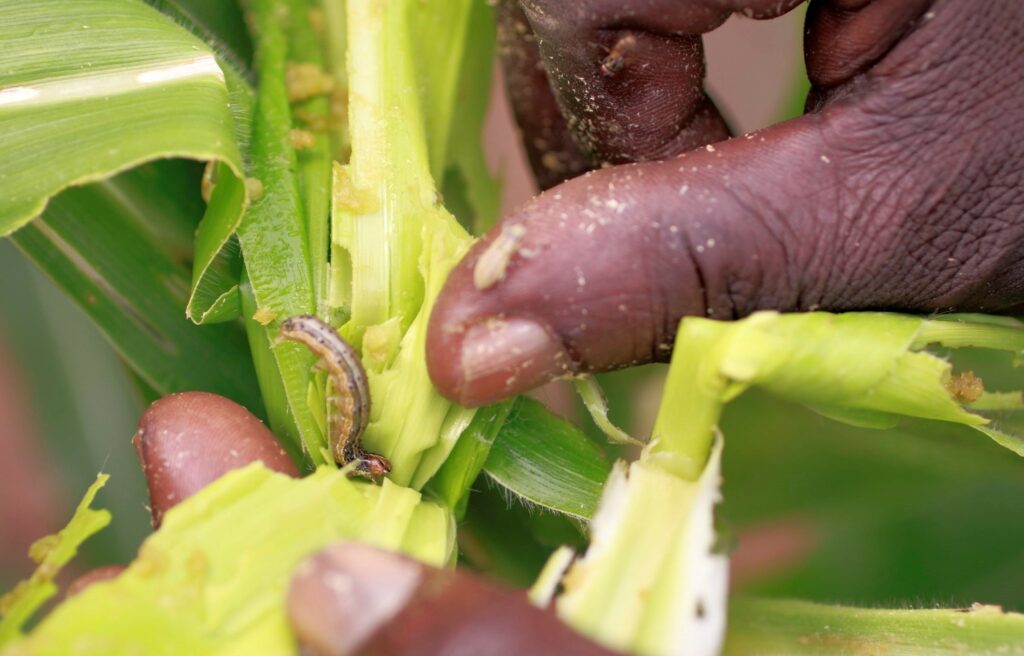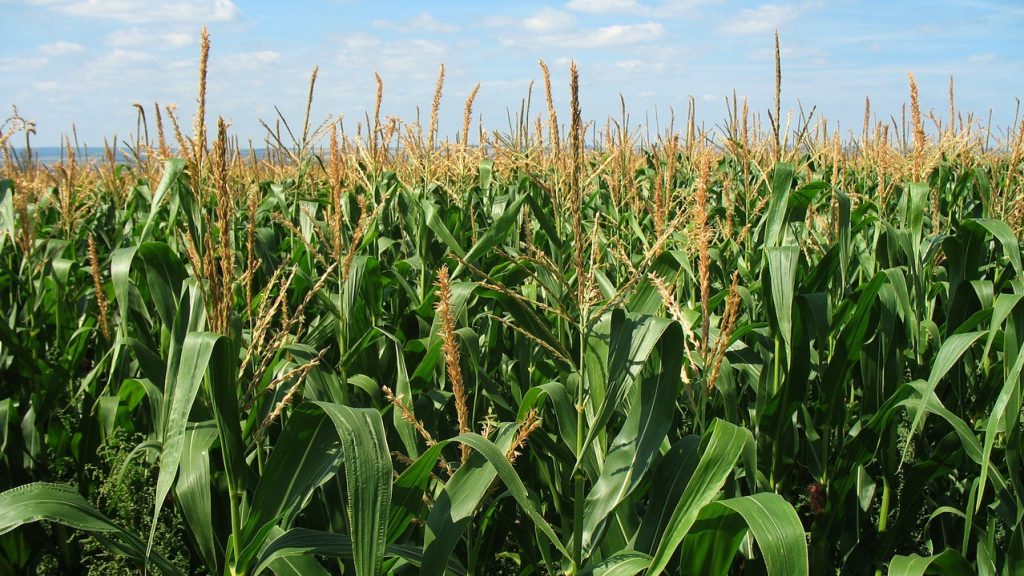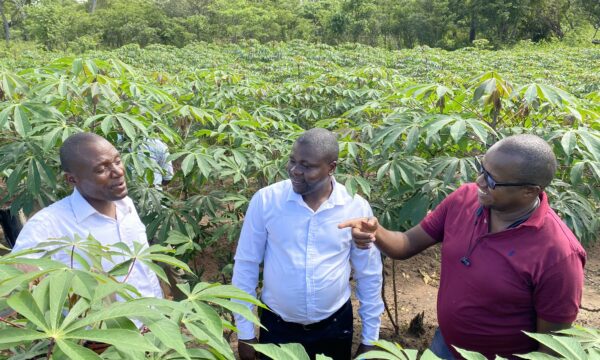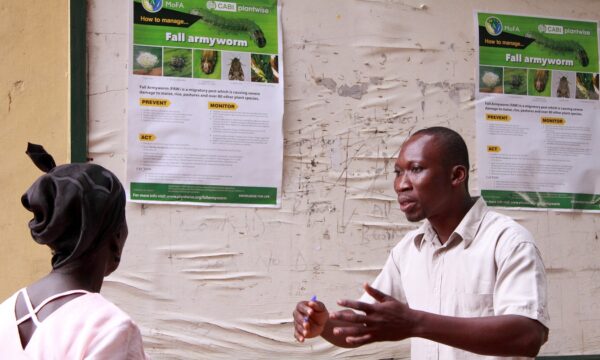Conservation farming has been promoted in sub-Saharan Africa as a way to potentially improve yields while conserving the environment. Farmer livelihoods are increasingly threatened by climate change, declining soil fertility, land degradation, pests, and diseases. Finding sustainable farming methods that address these challenges is key to feeding a growing population.

Conservation farming principles
Conservation farming aims to prevent the loss of arable land through three main principles – crop residue retention, crop rotation and minimal soil disturbance. What is more, there has been some evidence to suggest conservation farming can help improve smallholder crop yields. A new CABI-led study looks at whether this method of farming can offset the negative yield impacts of fall armyworm (Spodoptera frugiperda) in Zambia.
The benefits
There are several ways conservation farming may protect crops against FAW. It generates favourable microclimates where natural enemies can thrive, crop rotation disrupts the FAW life-cycle, and it supports healthy plant growth so crops are more likely to survive pest outbreaks. These are important advantages given FAW’s devastating impact in the region.
The barriers
However, despite these potential benefits, uptake of the three principles of conservation farming has been low. It requires high outlays for equipment and increased labour, plus, high opportunity costs linked to retaining crop residues, which many farmers use for livestock feed or fuel.
Using data from 1,048 smallholder maize plots across the major maize-growing areas in Zambia, the CABI-led study aims to understand: (1) the factors determining smallholders’ use of some or all of conservation farming practices; (2) whether conservation farming can raise maize yields even in periods of FAW outbreak; and (3) the mixed effects of conservation technology packages on smallholder maize yields under FAW stress.

Conservation farming – use by Zambian farmers
The study found that many Zambian smallholders use some of the conservation farming principles. However, only 26% of farmers used all three techniques. The reasons provided covered tenure insecurity, livestock raising, credit constraints, off-farm employment, and agro-climatic conditions.
There was some evidence that crop rotation, alone or in combination with crop residue retention, increased maize yields under FAW stress. However, minimum soil disturbance did not affect yields. The authors stated that farmers using improved seeds and agrochemicals were more likely to see better yield outcomes. Therefore, smallholders using conservation farming techniques – whether some or all – should supplement with better-quality seeds and pesticides to maximise their maize yields.
Pesticide use
One point highlighted by the authors is the use of pesticides to tackle FAW outbreaks. Sub-Saharan Africa has been hit hard by the invasive fall armyworm and farmers have relied heavily on pesticides to fight the pest. Some of the chemicals used are highly hazardous to human health and the environment and farmers are unlikely to use the recommended personal protective equipment. As such, the use of safer and environmentally friendly alternatives such as biopesticides and agro-ecological approaches should be promoted, as well as the development of maize varieties that are resistant to FAW.
Further reading
Read the full paper: Yield effects of conservation farming practices under fall armyworm stress: The case of Zambia
CABI Bookshop
Available this December from CABI Bookshop: Conservation Agriculture in Africa, Climate Smart Agricultural Development
Edited by: Saidi Mkomwa, African Conservation Tillage (ACT), Nairobi, Amir Kassam, University of Reading, UK
Plantwise Donors
This research was funded by the CABI-led Plantwise programme, which is financially supported by the Foreign, Commonwealth & Development Office (FCDO), United Kingdom; the Directorate- General for International Cooperation (DGIS), Netherlands; the Swiss Agency for Development and Cooperation (SDC); the European Commission (DG DEVCO); the Australian Centre for International Agricultural Research (ACIAR); the Ministry of Agriculture and Rural Affairs of the People’s Republic of China; Irish Aid; and the International Fund for Agricultural Development (IFAD).
1 Comment
Leave a Reply
Related News & Blogs
Celebrating success: Zambian smallholders combat cassava brown streak disease
Cassava is a critical crop to Zambia’s economy and food security. According to a 2019 paper, cassava (Manihot esculenta) is one of the most important root staple crops in Zambia. An estimated 30% of Zambians – over four million people – consume cassava…
8 November 2024





Nicely detailed discussion about conservation farming principles. Its not only Zambian farmers but all farmers in the world.